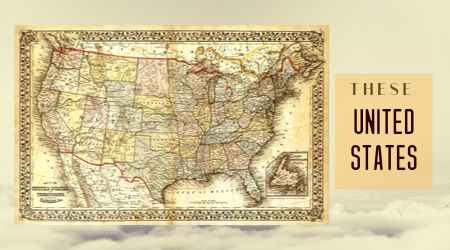Mississippi: The Magnolia State
Mississippi is often called The Magnolia State because of all the magnolia trees.
By: Kelli Ballard | June 23, 2020 | 423 Words

Mississippi River steamboat (Bettmann – Getty)
Mississippi joined the Union in 1817, becoming the 20th state. “The Magnolia State,” so named because of its many magnolia trees, was first explored in 1540 by the Spanish, but since they could not find any gold, they abandoned the area to seek fortunes elsewhere. The French were the first Europeans to establish a permanent settlement in 1699.
France gave up a portion of the territory to England at the end of the French and Indian War, and then the land finally went to the United States in 1798. Residents became torn over political differences in the 1820s as support for the (Thomas) Jeffersonian Republicans declined and the rise of the (Andrew) Jacksonian Democrats became more popular. Cotton crops were on the rise and so was slavery. However, not everyone was in favor of slavery, and many of those people belonged to the Whig Party, which did not follow Andrew Jackson’s political views.
The divide between the Whigs and the Democrats continued to grow until the North and abolitionists demanded the end of slavery. Mississippi seceded from the Union in 1861 and soon found itself in the middle of the Civil War.
 Even though the South lost the Civil War, Mississippi could not grapple with the loss of its workforce – namely slaves. In 1890, state lawmakers adopted a new constitution that started racial segregation. In 1954, the Supreme Court declared that racially segregated schools were not allowed under the U.S. Constitution. The ruling was not popular, and residents refused to follow the newest laws. A year later, a 14-year-old black boy was murdered after he was accused of whistling at a white woman in a grocery store. The white people accused of his death were acquitted. This began the 1960s civil rights movement.
Even though the South lost the Civil War, Mississippi could not grapple with the loss of its workforce – namely slaves. In 1890, state lawmakers adopted a new constitution that started racial segregation. In 1954, the Supreme Court declared that racially segregated schools were not allowed under the U.S. Constitution. The ruling was not popular, and residents refused to follow the newest laws. A year later, a 14-year-old black boy was murdered after he was accused of whistling at a white woman in a grocery store. The white people accused of his death were acquitted. This began the 1960s civil rights movement.
Mississippi continued segregating its schools until October 1969, when a federal court order unified and desegregated the system. The state had been ruled by the Democratic Party until the mid-20th century. The rise of the Republicans changed politics from conserving old traditions, such as slavery and racial inequities, to more inclusive policies.
Interesting Facts
- In 1778, Mississippian Oliver Pollock created the dollar sign ($).
- Blues music stemmed from the Mississippi Delta after the Civil War. Slaves used to sing “working” songs in the fields and that style of music morphed into the Blues we have today.
- In Nov. 1902, President Theodore (Teddy) Roosevelt was on a hunting expedition with the governor and refused to shoot a captured bear. A cartoon picture making fun of the president inspired a Brooklyn candy shop to create a stuffed “Teddy’s Bear.”
















